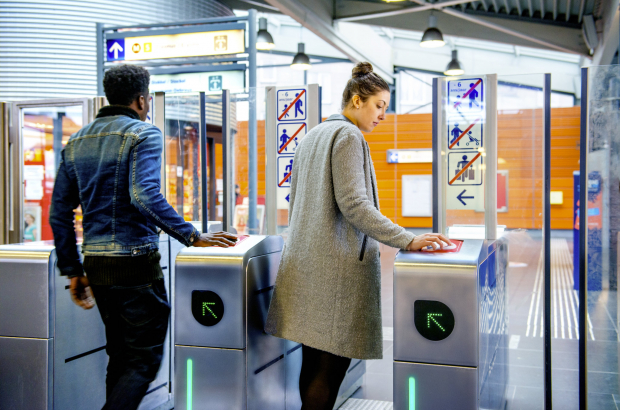- Daily & Weekly newsletters
- Buy & download The Bulletin
- Comment on our articles
Public transport users reluctant to hop back on board
Some 39% of public transport users in Belgium do not want to get back on the metro, according to a study carried out by VUB. The university questioned commuters about their current and future modes of transport as the coronavirus measures are being relaxed.
Brussels’ metro seems to be the greatest concern, with fewer saying they will avoid busses and trams, down to only 12% saying they will not quickly hop back on the train.
A full 75% of public transport users abandoned services during the lockdown, either working from home or turning to their car, bike or simply walking. Some 40% who are working from home said that they plan to use public transport less once they do go back to the office.
For those who have gone back to the workplace, the number of car users has remained the same as before the crisis, with those not returning to public transport mostly choosing to walk or cycle. Nearly one in five people who used to take public transport are now walking to work. And 13% are cycling instead.
Public transport is ‘big loser’
“Public transport is clearly the big loser here,” said Lieselot Vanhaverbeke, who co-ordinated the survey. “This is also the case internationally, with public transport in general at only about 40% of previous use. Our survey showed that the biggest concern of local commuters is occupancy levels” – in other words, how many people are in the tram or rail car.
“This is the most significant measure public transport services can take to get people back inside,” she said, “even more than the obligatory use of facemasks.”
As for Stib, it is unconcerned, assuming that it will win back commuters little by little. “We saw the same thing happen following the terrorist attacks of 22 March 2016,” said Stib CEO Brieuc de Meeûs. “Between six months and a year later, figures were back to normal.”
He admits that the recovery will take longer this time around, “at least 18 months and maybe even two years. But I have faith that the quality of our services will convince passengers to return. There’s still an urgent need for quality public transport.”
De Meeûs made the comments at a press conference today in which he announced figures from 2019, a record year for the service. Last year 433.5 million trips were taken on Stib trams, buses and the metro in Brussels, an increase of 4% on 2018. The user-reported satisfaction average was 7.1 out of 10, also the highest figure ever.
Photo courtesy Stib



















Comments
As a pensioner I would love to go out in town and perhaps spend into the economy but seeing how few people automatically wear masks and keep their distance in general means that I shall not. Anti virus measures must be obligatory and enforced first. I am not alone!